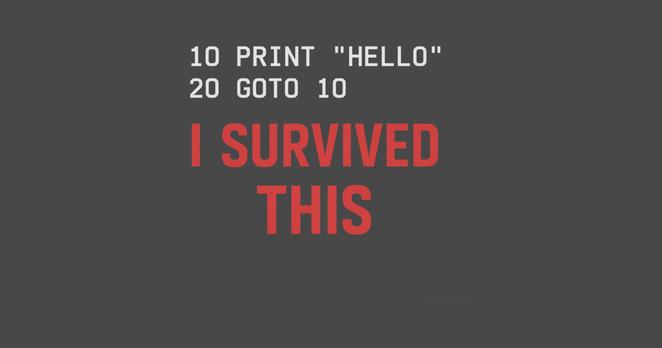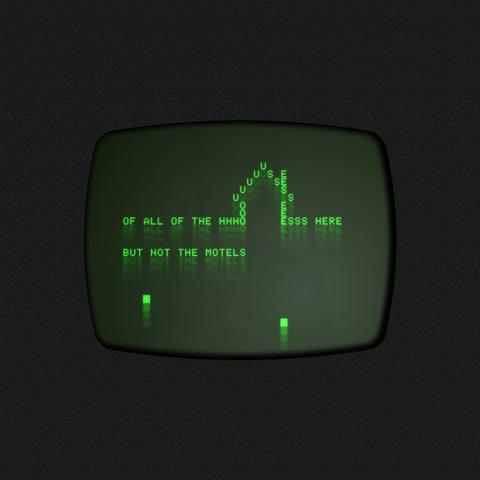A retro nerd design for true old-school programmers. Featuring classic BASIC code: 10 PRINT "HELLO" 20 GOTO 10 with the bold statement “I Survived This”. Perfect for developers, coders, and computer geeks who lived through the days of infinite loops and GOTO nightmares. A nostalgic and humorous tribute to vintage coding culture, ideal for t-shirts, hoodies, stickers, and more.
https://www.teepublic.com/t-shirt/80710585-basic-survivor?store_id=3966166
for basic survivior



